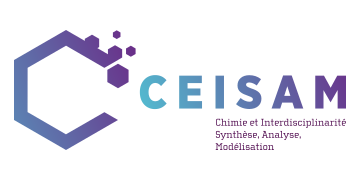
SOFTNMR – Méthodes sensibles pour le suivi en ligne par RMN en flux
Le projet SOFTNMR porté par Jean-Nicolas DUMEZ vise à fournir des informations très riches sur les réactions chimiques organiques, à travers le développement de méthodes sensibles pour l’analyse de mélanges réactionnels, qui reposent sur la spectroscopie de résonance magnétique nucléaire (RMN) en flux.
Détails du projet
Les réactions chimiques sont d'un intérêt fondamental et constituent le principal moyen d'accéder à de nouvelles structures et propriétés chimiques. La surveillance des réactions en temps réel est une approche puissante pour décrire, comprendre et optimiser les réactions chimiques. Il existe toute une série de méthodes analytiques pour le suivi des réactions, qui fournissent généralement des informations cinétiques sur des composés déjà identifiés. L'obtention d'informations structurelles détaillées et spécifiques à un composé, directement à partir de réactions effectuées dans des conditions expérimentales pertinentes, transformerait la synthèse chimique en permettant, par exemple, d'identifier les intermédiaires réactionnels et les produits secondaires ou dérivés. Le projet SOFTNMR vise à fournir des informations détaillées sur les réactions chimiques organiques grâce au développement de méthodes sensibles pour l'analyse des mélanges réactionnels par spectroscopie de résonance magnétique nucléaire (RMN) en flux. Le contrôle par RMN consiste classiquement à effectuer une réaction directement dans un tube RMN, ce qui limite la fiabilité des données et l'étendue des réactions pouvant être étudiées. Le contrôle en ligne par RMN de flux permet de surmonter ces difficultés et de contrôler les réactions dans des conditions expérimentales pertinentes. Cependant, la RMN en flux repose actuellement sur des méthodes qui sont limitées par i/ la complexité spectrale et ii/ la sensibilité modeste de la RMN.
Le projet SOFTNMR s'attaquera à ces deux limitations. Nous développerons de nouvelles méthodes RMN ultrasélectives rapides, afin d'extraire des spectres spécifiques à un composé par un contrôle en ligne. Nous concevrons notamment des expériences applicables en flux continu et offrant une sélectivité contrôlée. Nous développerons également un dispositif innovant qui s'appuie sur le flux d'échantillons pour hyperpolariser en continu les composés avec du parahydrogène, sans contamination. Nous nous appuierons sur l'amplification du signal par échange réversible (SABRE), en utilisant des catalyseurs de transfert de polarisation greffés, intégrés dans un circuit de flux personnalisé. Ces méthodes générales, s'appuyant sur des concepts et une instrumentation de dynamique de spin originaux, permettront d'observer et d'identifier un grand nombre de composés. Les méthodes SOFTNMR seront ensuite utilisées pour guider la conception de nouvelles réactions, et en particulier pour s'attaquer à la réactivité modérée ou faible de classes de N-hétérocycles dans les réactions de Diels-Alder, grâce à des informations clés obtenues par le suivi RMN en flux en ligne.
Le consortium implique trois partenaires complémentaires.
- CEISAM, où l'équipe MIMM travaille sur le développement et les applications des méthodes RMN pour l'analyse des mélanges, et en synthèse chimique avec un focus sur la chimie des flux.
- NIMBE, où le LSDRM développe et applique de nouveaux outils RMN, notamment pour les systèmes hyperpolarisés, et travaille sur la fonctionnalisation chimique des surfaces et des nanomatériaux.
- LIMA, où l'équipe BSM travaille sur la chimie organique synthétique et ses applications aux sciences de la vie et des matériaux.
Le projet SOFTNMR aura un impact scientifique significatif dans les nombreux domaines qui bénéficient d'une surveillance en ligne en temps réel, grâce aux méthodes générales et robustes qui seront développées. Ces méthodes seront bénéfiques pour la synthèse chimique organique par lots et aussi, au-delà du projet, pour la synthèse en flux et ses applications. Le concept de dynamique de spin et l'instrumentation d'hyperpolarisation introduits au cours du projet SOFTNMR seront également pertinents pour d'autres applications, telles que l'analyse sensible et à haut débit de mélanges. Les développements de la séquence d'impulsions seront distribués ouvertement, afin de permettre une large adoption. L'impact économique du projet sera assuré par des interactions fréquentes de chacun des partenaires avec les entreprises, ainsi que par la communication des résultats à un public général.
Membres du projet
Chercheur
